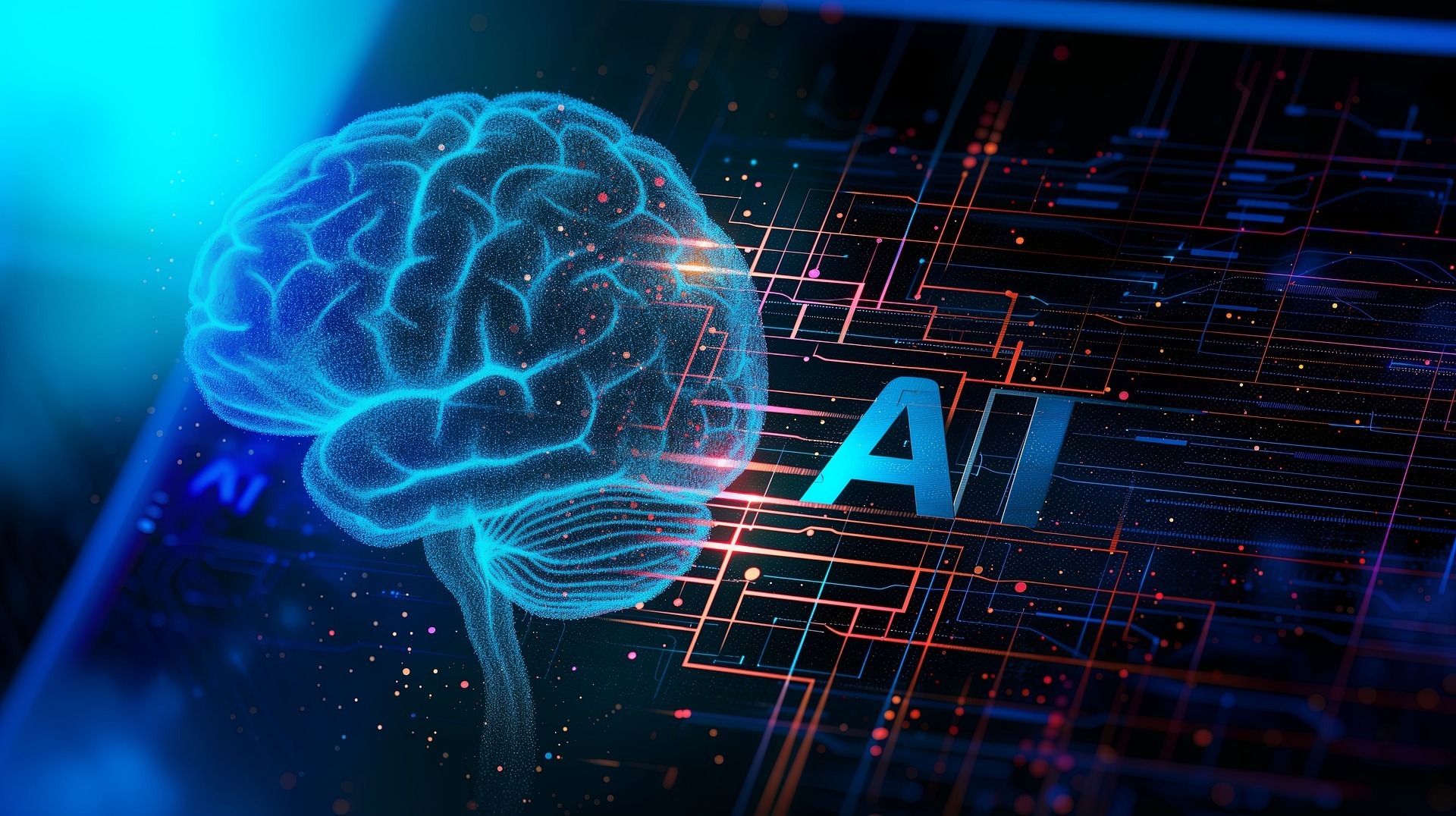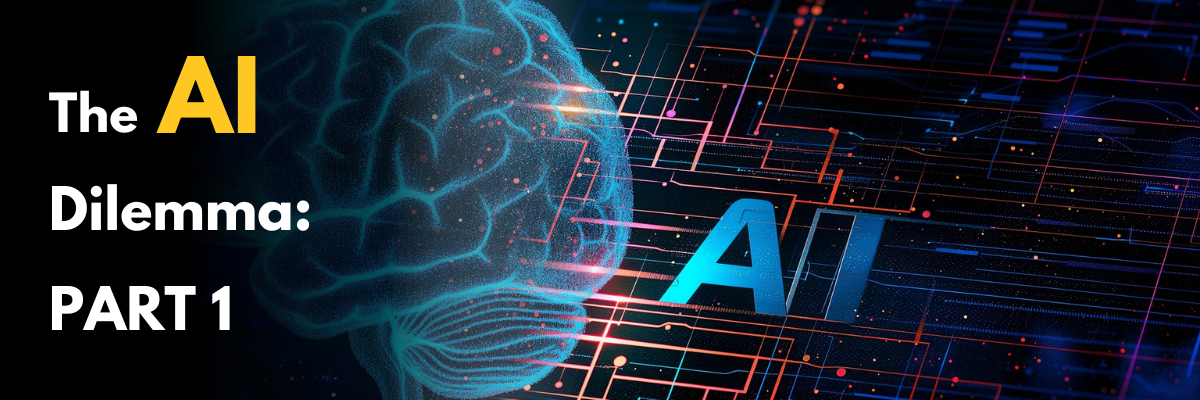
The AI Dilemma: 14 Reasons to Embrace AI for Content Creation
This post is part two of a two-part series on the utilization of AI in content creation.
Artificial intelligence (AI) has revolutionized content creation, offering numerous benefits that enhance efficiency, quality, and personalization. Last week, we discussed several drawbacks to the utilization of AI in content creation, including its potential damper on creativity and its strategic limitations. Today, we’re looking at 14 key advantages of using AI in content creation.
Let’s get started.
1. Time Savings
AI is a powerful tool that can automate repetitive and time-consuming tasks like data collection, early research, drafting, and basic editing. Today’s AI tools are akin to proofreaders, accelerating the more mundane aspects of the content creation process, enabling creators to get to the business of more strategic and creative aspects of their work. AI enables rapid content creation, from brainstorming ideas to drafting initial outlines. This speed is invaluable in today's fast-paced digital environment, where producing high-quality content quickly can be a major competitive advantage.
2. Increased Output
Many marketers also turn to AI because it boosts content creation output by automating various stages of the production process. Do you need to develop a content calendar for social media but find yourself short on time? Services like ChatGPT can give you a list of ideas to get started. Do you have an idea for a white paper but find yourself struggling with its layout? AI can help you build a structure. Thanks to AI, generating ideas, drafting initial content, and even conducting research is more streamlined than ever, enabling businesses to boost their content productivity.
Further, by assigning these more mundane tasks to AI, marketers and creators can focus on the higher level aspects of their work, ultimately enhancing their ability to respond to market demands and audience preferences swiftly. Rather than teams spending excessive amounts of time on lower-level tasks, their talents are used in larger spaces. By leveraging AI, organizations can not only scale their content efforts but also maintain a consistent flow of engaging material that resonates with their target audiences.
3. Improved Technical Accuracy
It is no secret that AI tools can improve technical accuracy. From spell checks to readability, various AI products are great at helping creative teams work out the kinks in their writing. For example, Grammarly reviews technical components such as grammar, spelling, and punctuation, and assists in clarity, readability, and plagiarism detection. Such tools are an invaluable part of the creative process, tackling small details so that teams can maximize their resources and prioritize content development.
4. Idea Generation
Nothing hits worse for a marketer than writer’s block. This is another area where AI shines. By analyzing existing content and trends, AI tools can suggest new ideas that might not be immediately obvious to human creators. These tools can also take your existing ideas and perform automated research to set you on the path to creativity. Last, they can also show you what the competition is doing. In each case, AI’s role in idea generation can make you more competitive by understanding what’s out there and developing solutions to gaps in the market.
5. Content Planning Assistance
AI tools are also helpful for content planning and your brand’s overall digital ecosystem. These tools can suggest optimal content formats, channels, and timelines based on audience engagement patterns and historical data. From providing suggestions on the best time to post on Facebook to giving insights on where to find Gen Z online, these tools are helpful research and resource assistants.
6. SEO optimization
AI has become an invaluable tool for SEO optimization, revolutionizing how marketers approach search engine rankings and content strategy. By leveraging advanced algorithms and machine learning capabilities, AI can analyze vast amounts of data to identify key optimization opportunities that might be overlooked by human analysts. For instance, AI-powered tools can conduct in-depth keyword research, uncovering long-tail keywords and predicting emerging search trends, allowing SEO professionals to stay ahead of the curve. Additionally, AI enhances content optimization by utilizing natural language processing to understand user intent and context, enabling the creation of more relevant and engaging content that aligns with search engine algorithms. These AI-driven insights not only improve the efficiency of SEO efforts but also contribute to higher search rankings, increased website traffic, and ultimately, better user experiences. As search engines themselves increasingly incorporate AI into their ranking algorithms, embracing AI in SEO strategies has become crucial for maintaining a competitive edge.

Connect with millions of Christians, church leaders, and faith-driven consumers through tailored advertising solutions.
LEARN MORE
7. Audience Analysis
While AI should not serve as your business’s audience development manager, it can be a useful assistant. AI can analyze vast amounts of data to understand audience preferences and behaviors, helping create content that resonates more deeply with the intended audience. These tools have revolutionized audience analysis by providing unprecedented depth, accuracy, and efficiency in understanding target demographics. AI can rapidly analyze vast amounts of data from diverse sources, including social media interactions, website behaviors, purchase histories, and demographic information. This comprehensive analysis allows marketers to uncover hidden patterns and insights that might be missed by traditional methods. Moreover, AI-driven audience analysis reduces human bias and error, which can, in turn, lead to more reliable insights.
8. Sentiment Analysis
From Reddit commentary to social media engagement, there are myriad ways consumers engage with brands—and talk about them. Sentiment analysis can help make sense of those conversations. This AI tool helps brands understand their audience’s emotions. From gauging interest in products to receiving crucial feedback on brand image, sentiment analysis is a powerful tool for businesses when it comes to understanding what the public thinks of the brand.
9. Performance Analytics
AI has revolutionized performance analytics by enabling organizations to process vast amounts of data with unprecedented speed and accuracy. AI simplifies performance analysis by automating repetitive tasks, freeing human analysts to focus on strategic initiatives and innovative problem-solving. The result is a more dynamic, precise, and proactive approach to performance analytics that can significantly boost organizational efficiency and productivity. Post-publication, AI tools can analyze content performance, providing feedback on engagement, reach, and audience response to inform future content creation.
10. Trend Identification
No cap? Bussin’? Living rent-free? If you don’t know what these terms mean, you’re not alone. As Gen Z hurls toward adulthood, their slang continues to permeate the mainstream. Fear not—with AI, you can actively identify emerging trends, topics, and yes, even slang words. AI’s ability to help you take a deep dive on content trends—ranging from where to post to how to say it—allows content creators to stay ahead of the curve.
11. Visual and Multimedia Integration
AI can also recommend or even create visual elements such as images, infographics, and videos that complement and enhance text. Tools like Canva empower businesses to quickly create professional visual content to accompany their written items. These types of online design platforms improve turn-around times and can free up marketers and graphic designers for bigger projects.
Further, by automating tasks such as video editing, motion capture, and animation, AI tools allow creators to produce high-quality content more efficiently. Additionally, AI algorithms analyze viewer preferences to deliver tailored experiences, ensuring that audiences receive content that resonates with their interests. The integration of AI in augmented and virtual reality further enriches these experiences, enabling interactive environments that adapt to user behavior.
12. Cost Reduction
AI has permanently changed the content landscape by offering a powerful solution for cost reduction across multiple business sectors. AI significantly contributes to cost reduction for businesses by automating routine tasks, optimizing resource utilization, and enhancing operational efficiency. This allows employees to focus on higher-value tasks, improving productivity. While it should not be utilized as a total employee replacement, a major value-add of AI is its ability to streamline processes, freeing up time for employees to focus on larger tasks. AI is an efficient resource saver for operational costs. Just remember: it is not a replacement for human creativity.
13. Content Repurposing
AI revolutionizes content repurposing by dramatically increasing efficiency and creativity, enabling marketers to transform a single piece of content into multiple formats across different platforms with unprecedented speed. AI tools can analyze existing content and automatically generate tailored variations for specific audiences, such as converting a blog post into social media graphics, video scripts, or podcast summaries. These AI-powered tools not only save significant time and resources but also ensure consistency in messaging while personalizing content for diverse channels and audience segments.
14. Scalability
Similarly, AI-powered content creation offers unprecedented scalability for businesses and content creators. By leveraging AI tools, organizations can rapidly generate large volumes of content across multiple platforms and formats without the traditional constraints of human resource limitations. This scalability is particularly beneficial for industries like digital marketing and e-commerce, where the demand for fresh, relevant content is constant. From sponsored content to product descriptions, AI can quickly draft the framework for a digital content ecosystem. This, in turn, enables employees to be more productive and helps your business stay ahead of competitors by maintaining a constant stream of new content.
Conclusion
The integration of AI into content creation processes represents a transformative shift in how we approach digital marketing, e-commerce, and online communication. From significant time savings and increased output to enhanced technical accuracy and deeper audience insights, AI is revolutionizing every aspect of content production. Handing off smaller, more mundane tasks to AI tools empowers businesses and their employees by freeing up their time for more strategic and creative work.
However, it’s crucial to remember that AI is not a replacement for human creativity—rather, it is a complement. From helping talented copywriters break through a period of writer’s block to quickly digging into vast amounts of data for big picture insights, AI technologies have the potential to help businesses secure their competitive edge. When used as an accessory in the creative process, AI promises to deliver new opportunities for engagement, personalization, and impact.
Ready to discover how to tap into The Christian Post’s audiences to maximize your marketing strategy? Let’s talk.


